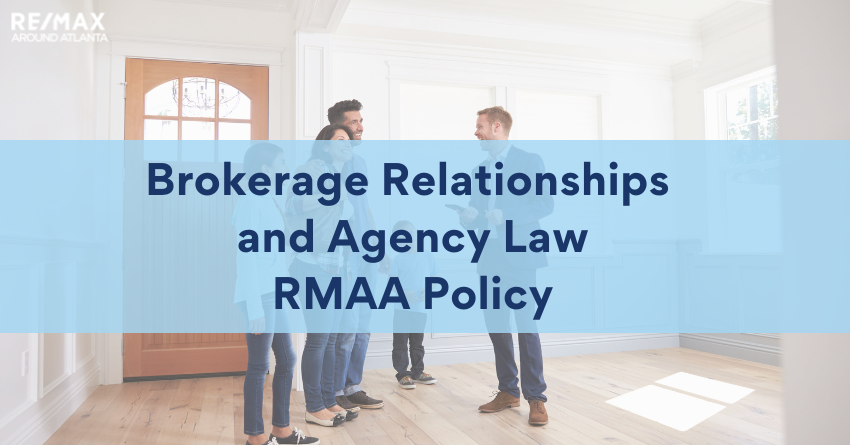|
The Georgia Real Estate Commission regulates the use of support personal or unlicensed assistants. An unlicensed assistant is only allowed to perform ministerial duties. These are duties which do not require the exercise of the assistant's own judgment.
The RMAA Policy and Procedures Manual clearly outlines the procedures for employing an unlicensed assistant. Among other requirements, there must be a written agreement with job descriptions, method and amount of compensation, full- or part- time status, treatment of taxes, insurance, etc. For this article, we are focusing on the job description. The agreement must include specific language that the licensed assistant shall comply with all provisions of the Georgia Real Estate Commission, state, federal and other regulatory agencies and that the unlicensed assistant shall not perform any acts of a licensee. (Please refer to the RMAA Policy and Procedures Manual for more detailed information on employing an unlicensed assistant.)
7 Comments
No person shall be discriminated against based on sex, race, age, disability, color, creed, religion, sexual orientation, national origin, familial status or any other protected class. The Company policy prohibits discrimination in either hiring or firing of personnel based on sex, race, age, disability, color, creed, religion, sexual orientation, national origin, familial status or any other protected class.
RE/MAX Around Atlanta believes that fair housing policies are not just the law of the land but simply the right thing to do. The Company maintains a strong policy upholding all federal and state fair housing laws and Article 10 of the REALTOR Code of Ethics, including review and adherence to NAR’s Fair Housing Declaration. Associates agree to comply with all applicable federal, state and local fair housing laws. Among the prohibited practices which are against this policy and the law are:
Violating the FHA could get you into serious legal trouble and cost you thousands of dollars. Here are some common fair housing mistakes you’ll also want to be aware of:
If in Doubt:
Should an Associate be accused of discrimination, the Broker will investigate. If the investigation confirms the accusation, the Associate’s actions will be reported to the Georgia Real Estate Commission for further investigation and necessary action. A basic premise to which the Company and its Associates subscribe is that individuals with similar financial resources and interests in the same housing market area have a like range of housing choices available to them regardless of their race, color, religion, sex, handicap, national origin, ancestry, age, marital status, familial status, physical or mental disability, sexual orientation, pregnancy, gender identity or any other protected class, and that information and service will be made available to enable all clients and customers of our Company to have free choice in housing opportunities. A landlord could face large fines if they are found guilty of a violation. Cases tried before a HUD Administrative Law Judge could result in penalties of up to $21,000 for a first violation. For subsequent violations, the fine increases up to a maximum penalty of $105,194. In addition to the administrative penalties, you may also be liable for paying damages and attorney’s fees to someone who has experienced housing discrimination. In the state of Georgia, brokerage law permits client relationships, customer relationships, dual agency relationships, and designated agency relationships. Client relationships, including dual agency relationships and designated relationships, can only exist when a written brokerage agreement is executed between RMAA and the client.
BUYER REPRESENTATION It is RMAA’s policy to represent each buyer with whom the Company is working as a client pursuant to a written Buyer Brokerage Agreement, and in addition the Associate must promote the interests of the buyer client by (a) seeking a property at a price and on terms acceptable to the buyer; (b) timely presenting all offers and counter offers to and from the buyer; (c) disclosing to the buyer adverse material facts which the Associate has actual knowledge concerning the transaction; (d) advising the buyer to obtain expert advice as to material matters which are beyond the expertise of the Associate; (e) timely accounting for all money and property received by the Associate in which the buyer has or may have an interest; (f) exercising ordinary skill and care in working for the buyer; and (g) complying with all laws and regulations governing real estate brokers and Associates. SELLER REPRESENTATION It is Company policy to represent each seller with whom RMAA is working as a client pursuant to a written listing agreement, and in addition the Associate must promote the interests of the seller client by (a) providing information on market statistics to the seller; (b) advising the seller in regards to property condition and pricing; (c) marketing the home to potential buyers; (d) timely presenting all offers and counter offers to and from the seller; (e) advising the seller to obtain expert advice as to material matters which are beyond the expertise of the Associate; (f) timely accounting for all money and property received by the Associate in which the seller has or may have an interest; (g) exercising ordinary skill and care in working for the seller; and (h) complying with all laws and regulations governing real estate brokers and Associates. CONFIDENTIALITY As required by the Brokerage Relationships in Real Estate Transactions Act (BRRETA), Associates must maintain confidentiality of all personal and financial information and other matters identified as confidential by the client unless otherwise required by law or if the buyer or seller permits disclosure of the information by subsequent word or conduct. An Associate should treat as confidential any information provided by the client that may reasonably be expected to have a negative impact on the client’s real estate activity. Licensees should pay attention not to make unauthorized or offhand comments about a client's situation or property in a way which could be considered a violation of the duty of confidentiality. Four areas considered of importance are:
CUSTOMER RELATIONSHIP When an Associate is acting as the seller’s listing agent only and there is not a selling broker involved, then the Associate must treat the buyer as a customer. Under those circumstances there is no agency relationship between the Associate and the buyer. Instead, the Associate will work with the buyer as a customer and must perform the following responsibilities to the buyer: (a) treat the buyer fairly; (b) not knowingly give the buyer any false information; (c) timely disclose to the buyer all adverse material facts pertaining to the physical condition of the property and improvements located on such property, including but not limited to, material defects in the property, environmental contamination and facts required by statute or regulation to be disclosed which are actually known by the Associate, and which could not be discovered by a reasonably diligent inspection of the property by the buyer; and (d) timely disclose all material facts pertaining to existing adverse physical conditions in the immediate neighborhood within one mile of the property which are actually known to the Associate and which could not be discovered by the buyer upon a diligent inspection of the neighborhood or through a review of reasonably available governmental regulations, documents, records, maps, and statistics. DUAL AGENCY AND DESIGNATED AGENCY Company policy does not allow dual agency where one Agent represents both parties in a real estate transaction without prior written approval by the Broker. A potential single Agent dual agency situation can occur when (1) a buyer comes to the listing Agent’s open house, (2) an Agent is an on-site builder representative, (3) the listing Agent receives a direct solicitation from a potential buyer from a sign-call, ad-call, or other similar contact, or (4) a buyer is interested in a for sale by owner. In situations like 1, 2, and 3, the Associate involved will represent the seller as a client, and in situations like 4, the Associate involved will represent the buyer as a client. The other party in these situations can be treated as a customer, and no single Agent dual agency should occur. Should the other party insist on client representation, Company policy is to assign another RMAA Agent from our Office to work with that party. Any compensation sharing between Agents should be agreed upon in writing in advance and a copy should be given to the Office. With this preferred policy, different Agents affiliated with our Office act as designated Agents to exclusively represent different clients in the same transaction. The Office has the right to assign such Agents in order to have a designated agency situation, rather than single Agent dual agency situation. Each Agent so assigned shall ensure that they each represent their respective clients in accordance with the Brokerage Relationships in Real Estate Transactions Act as well as the respective brokerage agreement, as discussed above. Regarding designated agency, the Company has adopted a policy that the Associate identified in the listing agreement is automatically assigned to represent the seller as a client and that the Associate identified in the Buyer Brokerage Agreement is automatically assigned to represent the buyer as a client. If, in the rare case in which dual agency is permitted in writing by a member of the Broker Team, the 2 involved clients must each consent to deal agency in writing. If the situation occurs after either the Buyer Brokerage or Seller Brokerage paperwork has been executed, then amendments to both agreements consenting to dual brokerage must be obtained by the associate. Considering the increasing emphasis in the industry on agency relationships, the Company prefers and urges that each Associate discuss agency relationships with customers and clients at the earliest possible time in the relationship to avoid later misunderstandings. All Associates must disclose not later than the time periods required by the License Law and the rules promulgated thereunder. |
RMAAReal Estate News, Brokers Blog & More Categories
All
Archives
July 2024
|




 RSS Feed
RSS Feed